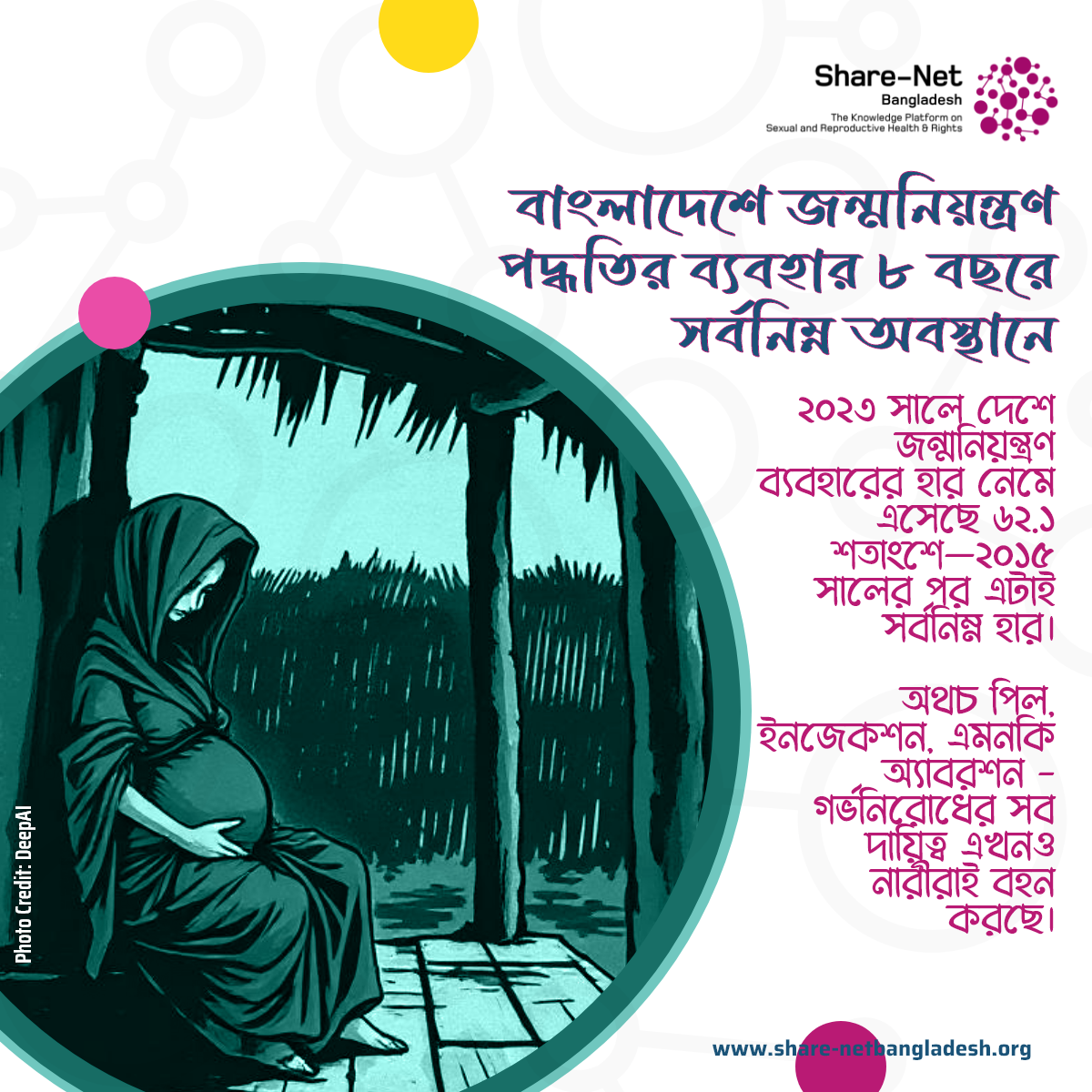The Uneven Burden of Contraception: Why Women in Bangladesh Still Carry the Most Weight of Reproductive Responsibility
A decade-long review of Bangladesh’s reproductive health landscape reveals a worrying trend: contraceptive use dropped to 62.1% in 2023—the lowest since 2015—according to the Bangladesh Sample Vital Statistics 2014–2023 report by the Bangladesh Bureau of Statistics (BBS). While the report provides hard numbers, it also reflects something deeper: a persistent gender divide in family planning responsibilities.
For women like Aasha (not her real name), a 27-year-old mother of two from Pirojpur, the numbers are more than just statistics—they are lived realities. “I had heavy bleeding, blackouts, and felt like I was dying every day. I told my husband sterilisation would be safer than taking these cursed pills,” she shared. Her plea was met with silence, and, eventually, rejection. Her husband, like many Bangladeshi men, didn’t want to consider vasectomy, citing health fears and social pressure.
Her story highlights a central concern in Bangladesh’s reproductive health system: the uneven scale of reproductive responsibility. According to the BBS report, oral contraceptive pills and injectable methods—used almost exclusively by women—still dominate. Pills accounted for 35.5%, and injectables 14%, while condom use stood at only 6.9%. Male sterilisation? A negligible 0.2%.
Despite scientific progress, male contraceptive options have not changed much since the 1960s. “This isn’t just a technological lag; it’s a societal mindset,” said one public health expert. “Family planning is still seen as a woman’s burden.”
This is worsened by economic disparity. The 2022 Bangladesh Demographic and Health Survey shows 60% of contraceptive users now depend on private sector providers—up from 42% in 2011. Contraceptives are slowly becoming a commodity, not a right. Women in rural or low-income areas, especially in char or haor regions, are left vulnerable due to poor access and supply chain failures.
Equally alarming are the consequences. Abortion-related deaths have surged from 6% in 2016 to 14% in 2024, according to health sector data. This spike is linked to failed contraception and unsafe abortion procedures, often driven by male disengagement and inadequate public supply.
Meanwhile, male awareness lags shockingly behind. A 2020 survey found only 12% of men believed they should be responsible for family planning, versus 69% of women who said it should be shared.
Though research on male contraceptives is gaining momentum globally—like NES/T gel in the U.S. and YCT-529 in the UK—it won’t matter if cultural attitudes don’t evolve in places like Bangladesh.
The takeaway is clear: SRHR progress depends not only on innovation but on equality. Until men share the responsibility, women will continue to bear the physical and emotional cost of contraception, often in silence.
Source: The Daily Star


